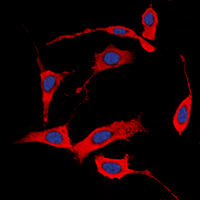
ICC/IF analysis of formalin-fixed MCF7 cells using GTX32389 Her4 / ErbB4 (phospho Tyr1284) antibody. Red : Primary antibody Blue : DAPI Permeabilization : 0.1% Triton X-100 in TBS for 5-10 minutes
Her4 / ErbB4 (phospho Tyr1284) antibody
GTX32389
ApplicationsImmunoFluorescence, Western Blot, ImmunoCytoChemistry, ImmunoHistoChemistry, ImmunoHistoChemistry Paraffin
Product group Antibodies
TargetERBB4
Overview
- SupplierGeneTex
- Product NameHer4 / ErbB4 (phospho Tyr1284) antibody
- Delivery Days Customer9
- Application Supplier NoteWB: 1:500 - 1:1000. ICC/IF: 1:100 - 1:500. IHC-P: 1:100 - 1:200. *Optimal dilutions/concentrations should be determined by the researcher.Not tested in other applications.
- ApplicationsImmunoFluorescence, Western Blot, ImmunoCytoChemistry, ImmunoHistoChemistry, ImmunoHistoChemistry Paraffin
- CertificationResearch Use Only
- ClonalityPolyclonal
- ConjugateUnconjugated
- Gene ID2066
- Target nameERBB4
- Target descriptionerb-b2 receptor tyrosine kinase 4
- Target synonymsALS19, HER4, p180erbB4, receptor tyrosine-protein kinase erbB-4, avian erythroblastic leukemia viral (v-erb-b2) oncogene homolog 4, human epidermal growth factor receptor 4, proto-oncogene-like protein c-ErbB-4, tyrosine kinase-type cell surface receptor HER4, v-erb-a erythroblastic leukemia viral oncogene homolog 4, v-erb-b2 avian erythroblastic leukemia viral oncogene homolog 4
- HostRabbit
- IsotypeIgG
- Protein IDQ15303
- Protein NameReceptor tyrosine-protein kinase erbB-4
- Scientific DescriptionThis gene is a member of the Tyr protein kinase family and the epidermal growth factor receptor subfamily. It encodes a single-pass type I membrane protein with multiple cysteine rich domains, a transmembrane domain, a tyrosine kinase domain, a phosphotidylinositol-3 kinase binding site and a PDZ domain binding motif. The protein binds to and is activated by neuregulins and other factors and induces a variety of cellular responses including mitogenesis and differentiation. Multiple proteolytic events allow for the release of a cytoplasmic fragment and an extracellular fragment. Mutations in this gene have been associated with cancer. Alternatively spliced variants which encode different protein isoforms have been described; however, not all variants have been fully characterized. [provided by RefSeq, Jul 2008]
- Storage Instruction-20°C or -80°C,2°C to 8°C
- UNSPSC12352203

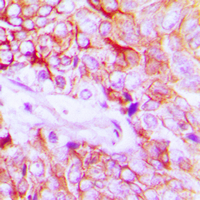

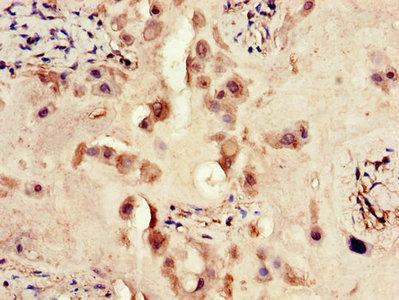

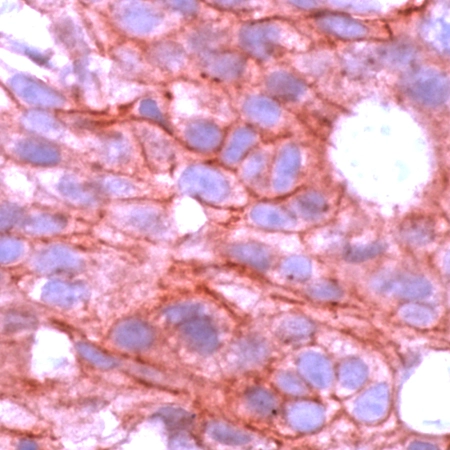
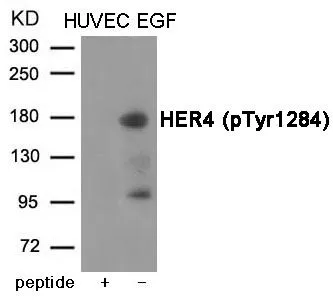
![IHC-P analysis of human breast carcinoma tissue using GTX80811 Her4 / ErbB4 antibody [HFR1]. Left : Primary antibody Right : Negative control without primary antibody Antigen retrieval : heat induced antigen retrieval was performed using 10mM sodium citrate (pH6.0) buffer, microwaved for 8-15 minutes Dilution : 1:20](https://www.genetex.com/upload/website/prouct_img/normal/GTX80811/GTX80811_1413_IHC-P_w_23061322_826.webp)
